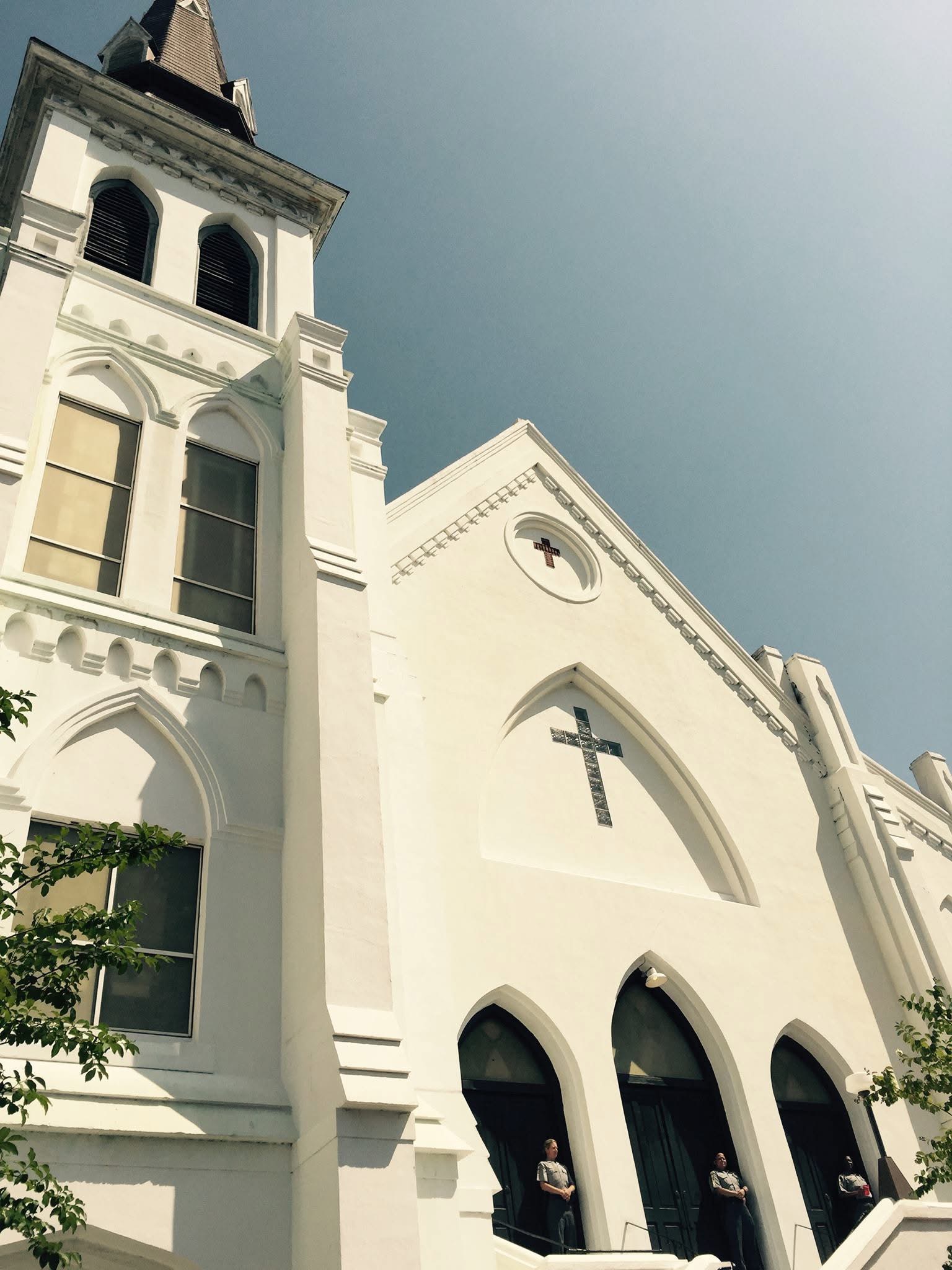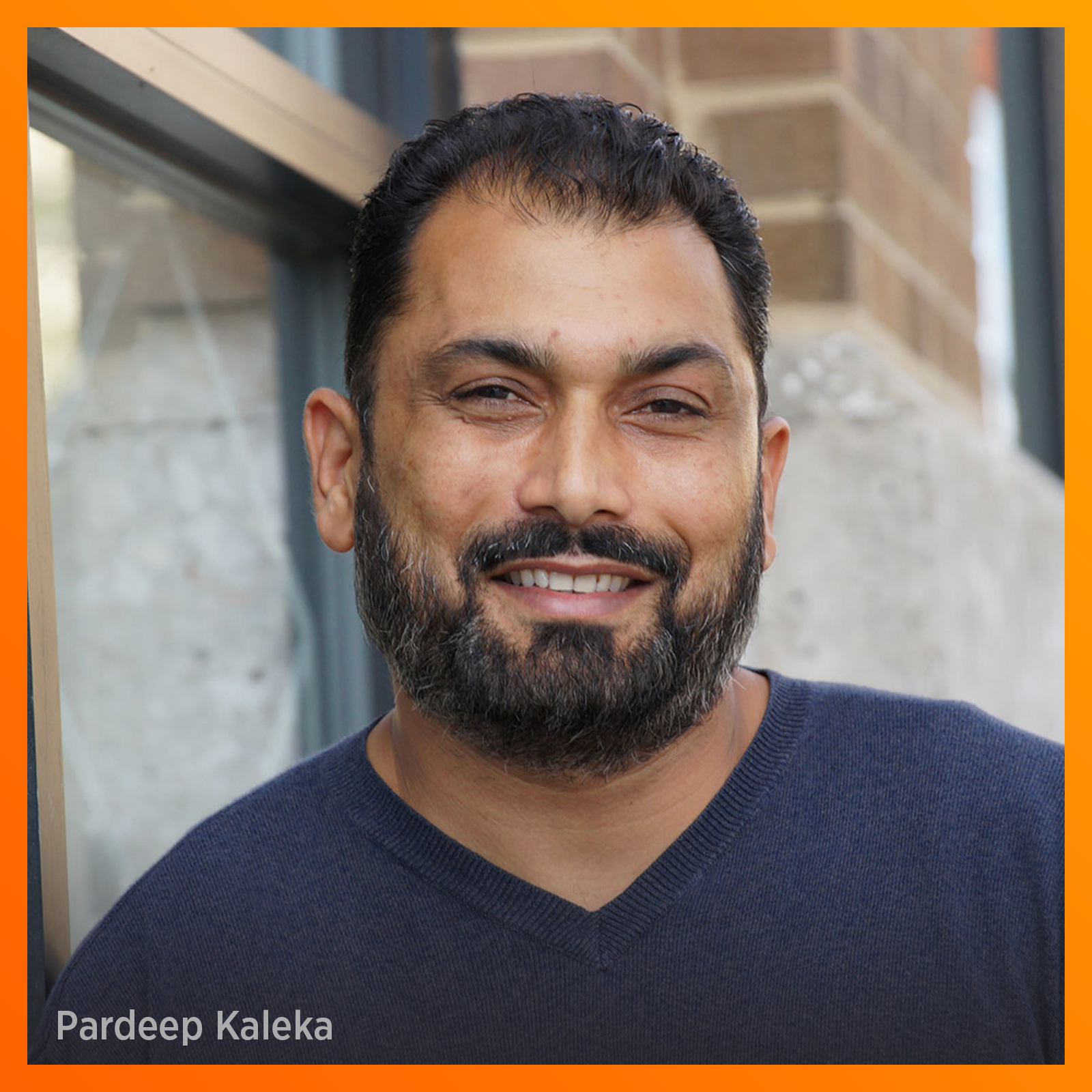
NIOT leader Pardeep Kaleka has a deep and personal understanding of the impact of hate violence. Here, he remembers the Charleston AME Church massacre with reflections on the persistence of anti-Black racism and the complexity of forgiveness.
By Pardeep Kaleka
It has been ten years since nine beautiful souls were taken from us at the historic Emanuel African Methodist Episcopal Church in 2015. Dylan Roof, an online radicalized white supremacist who largely expressed anti-Black ideology, hoped that his racially inspired actions that day would incite a race war. In the aftermath, Roof reportedly would go on to tell the investigators that he nearly did not go through with the shooting because the Black church parishioners that he prayed with for nearly an hour before he shot and killed them had been so kind to him.
With this understood, is kindness and forgiveness enough? Is our sympathy enough?
Obviously, in the circumstances of a bible study group showing kindness and welcoming a stranger to join them in reflection and prayer is sacred to the core for many faiths, but especially the Christian faith. From the Old Testament to the New Testament, there exists a clear call for Christians to welcome and care for the stranger.
In the field of targeted violence prevention and anti-hate campaigns, there exists a whole field of study that has been formed around hate crime survivors, those who have been intimately impacted by an act of violence largely motivated by their belonging identity. I was introduced to this group in 2012 following the racial, ethnic, nationalistic, and religiously motivated hate-murders of seven people, including my father, by a neo-Nazi at the Sikh Temple in Oak Creek, WI.. Tragically, this network of survivors continues to grow in numbers and in complexity of identifying the motivated reasoning they endure violence. Additionally, survivors of targeted violence typically experience significant short and long-term psychological challenges. I don’t mean to demean nor criticize the compassion of seeing the dignity in the stranger, especially as it relates to what happened at Emanuel AME in 2015. Holding on to our shared humanity is essential to overcoming hate.
But who is expected to forgive? What do we expect of traumatized people in relation to our own responsibilities to address the violent manifestations of hate?
A friend whom I’ve been blessed to get to know over the years is the amazing Rev. Sharon Risher, Author of “For Such a Time as This: Hope and Forgiveness After the Charleston Massacre.” Rev. Sharon Risher is the daughter of Ethel Lee Lance, who was killed that tragic day in June 2015 by Dylan Roof. In the days after the shooting, as more and more of the victims’ families gained the strength to speak to the media and express their feelings in the aftermath of hate, Rev. Sharon Risher shared with CNN that she was not able to forgive the racist shooter who killed her mother. Rev. Sharon Risher would go on and ask another poignant question that has stayed with me since: Why does the double standard exist for Black communities who have been the targets of hate, having to provide forgiveness in the aftermath of violence, that is not placed on other communities?
Rev. Sharon Risher stated that, even ten years later, she still “receives a major portion of her questions on her forgiveness” of the shooter, Dylan Roof. This is not unique to Rev. Risher, as the 10-year remembrance services and community gatherings happen to memorialize those nine lives lost at Emanuel AME, there still exists a pattern of media focused on if the survivors have forgiven the shooter.
Have “kindness and forgiveness” become strategically hollow coping mechanisms of those holding power to absolve themselves of the responsibility of failed actions? Why are we not utilizing lessons learned from tragedies impacting minimally represented communities to instead pass policy and develop intentional infrastructure and campaigns that defuel the narrative of violence and hatred?
According to FBI data, anti-Black hate crimes consistently represent the largest proportion of race-based hate crimes in the United States. In 2023, over half of all race-related hate crimes reported were anti-Black incidents. While the total number of hate crimes reported to the FBI increased in 2023, the number of anti-Black incidents remained disproportionately high compared to other racial groups. A recent five-year longitudinal study also verified that the largest number of hate-fueled offenses were motivated by anti-Black bias.
The inability to recognize Black pain in America is both historic and systemic. And now, even within the targeted violence prevention and response field, infrastructure to address anti-Black bias and violence is mostly insufficient and inadequate.
There is a need for continued research, especially as systemic and structural racism has been so caked in the American psyche and experience that anti-Black bias barely registers in our field of work. Shortly, we can be intentional in maximizing cross-cultural and cross-disciplinary approaches to address targeted violence, which will help communities not feel so isolated as they address the acute targeting of their own community members.
Over the years, I have seen some improvement regarding Black representation in the anti-hate space, but some Black voices that are involved in the field report feeling sympathized for or tokenized. We must do better at genuinely including Black expertise in research, evaluation, and leadership to address anti-Black bias and hate. This does not mean that other voices should be discouraged, but rather that we should examine hate directed at any community from both an acute and a comprehensive perspective. After all, this is what our goal was when we were inspired to work holistically and treat hate as a public health crisis.
Ultimately, acknowledging and repairing past damage helps prevent future violence. Thus, truth and reconciliation efforts worldwide have become best practices for those who genuinely want to move forward as collective entities.
In the days following the shooting at Emanuel AME, I got in our car and drove to Charleston, North Carolina, with some others who are also working in our field of targeted violence prevention. However, we did not go as subject matter experts but instead to pray with the congregation and community. When we arrived at the footsteps of Emanuel AME, we witnessed the community of Charleston, Black, brown, and white people singing and dancing in front of a taped-off crime scene. The summer air of those days in the aftermath of the shooting was filled with deep emotions and histories of the impact that white supremacy has had. Scars were written into the faces of nearly everyone who attended the spoken word and collective singing of communal melodies of healing.
We are all still healing from a cancer of power. As we heal, let us be mindful not to repeat the cycles of dominance and violence that contributed to this cancer in the first place. In the words of Rev. Sharon Risher, “whoever you are, you can use your voice to bring hope to someone else and invoke change.”
Kindness and compassion matter greatly, and we need to build a world that has more of them; however, they cannot exist without responsibility and action.
In the loving memory of The Rev. Clementa Pickney, Cynthia Graham Hurd, Susie J. Jackson, DePayne Middleton-Doctor, Tywanza Sanders, The Rev. Daniel Lee Simmons Sr., The Rev. Sharonda Coleman-Singleton, Myra Thompson, and Rev. Risher’s mom, Ethel Lee Lance.
